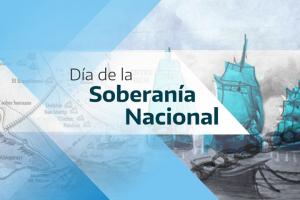The battle of the Vuelta de Obligado, in 1845, marked a milestone by which, every November 20, the National Sovereignty Day is commemorated and celebrated.
That day, Argentine soldiers repelled the invasion of the Anglo-French army, which tried to colonize the territories of our country. But the Government of Juan Manuel de Rosas, backed from exile by General José de San Martín, prepared a resistance and prevented it.
The invading forces sought to enter through the Paraná river. However, the national troops, under the command of Lucio Mansilla, anticipated them in a narrow bend in that river called "Vuelta de Obligado", in the Buenos Aires district of San Pedro.
The number of enemy forces far exceeded the number and modernity of their weapons to the Argentine ones, who nevertheless were not intimidated and fought for seven hours. In this way, they guaranteed that the adversary troops could not occupy the coasts, a necessary objective to be able to enter the Argentine territory.
The resistance to the foreign invasion achieved the defense of the country in terms of borders and trade, since it was avoided that foreign products were placed on the market by displacing local articles.
The event served to ratify and guarantee national sovereignty, involved the signing of a peace treaty between Argentina, France and Great Britain, and was recorded in history as a symbol of independence, freedom and national unity.


